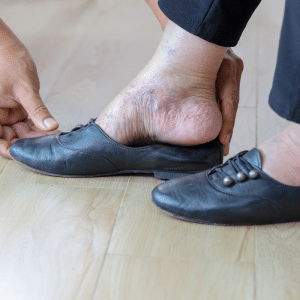I was recently speaking with a woman who told me of her own mother's life. Her mother lived until age 96, and she was the primary caregiver to a loved one with special needs until she was aged 90! I was so impressed by this that I decided to look into the average age of caregivers in the United States. The average age is 63!
Since that is the average age, it stands to reason that many caregivers are quite a bit older than that, and while 90 might be on the extreme side of the care giving spectrum, many adults do offer care to those older and younger than themselves who are in poor health even after they themselves are in their 80s.
The question then becomes, how long is this safe? Below I'll list some parameters that can be used for you to ask yourself in order to determine whether or not you should continue to give care to someone else as a primary caregiver.
First determine whether your own health/abilities permit sound care for the other individual. What is your own health like? Are you prone to falling or having severe blood sugar issues that could leave the person you're caring for without supervision unexpectedly? Is your strength sufficient for the type of care that they need? If they fall, are you able to pick them up? If they need help bathing, are you able to do that in a safe way? Run through scenarios in your mind in order to answer these questions. If you are able to help in many scenarios, but find that bathing them on your own might be a challenge, consider getting help on certain days for that activity. If your own health is fairly unstable, it might be time to consider getting help so that you do not become run down. Many times other family is available, or there may even be help from the state or an in home health care program for the person that is now in your care. If you are able to have periods of rest or help with some aspects of their lives, you may be able to continue care for longer. If your health is in rough shape, it might be time to hand off care giving responsibilities to someone altogether. You could still offer to give them periods of respite so that they have rest, but should not offer long term care. The one to whom you are offering care might also benefit from an assisted living facility. If this is the case, be sure that you continue to visit them on a regular basis so that they have some consistency in their schedule & care, as well as a buffer against loneliness and depression.
Second, if you are able to continue care, determine how much help you need. As was stated earlier, you may very well be able to continue care into your later years, but only if you have help from others. If you are feeling very run down, it may be time to consider asking for help occasionally from others. See if someone would be willing to sit with the one whom you care for on certain days of the week so that you can plan an outing or shopping trip. Find out if there is anyone willing to help with transporting when necessary, or with showering days, or even with cooking a meal occasionally. This should offer you support and relieve the pressure that you feel on a regular basis, making it more likely that you can continue care for longer.
Finally, determine a plan of action for when you will not be able to maintain care. None of us likes to think about this eventual day, but it will likely come and it's better to be prepared so that the transition will go smoothly. Inquire into group homes or assisted living facilities. Inquire into rehabilitative centers or nursing home facilities. Ask family members whether they'd be willing to consider care. These plans do not need to be set in stone, but they should be written down & shared with someone else in case anything happens to you, the current primary caregiver.
Care giving can be a very fulfilling purpose for the later years of life, but should only be attempted with plenty of support from others. Your health is just as important as the health of the one to whom you offer care. Do not be afraid to let people know what you need and when it has become too much for you to handle. Being realistic in your expectations of yourself will go a long way toward giving the best care to others. Next week we'll look at some of the most common statistics with regards to caregivers and their struggles & offer some simple way to combat them. Until then, keep your chin up! Your service to those you offer care to is incredibly valuable!



